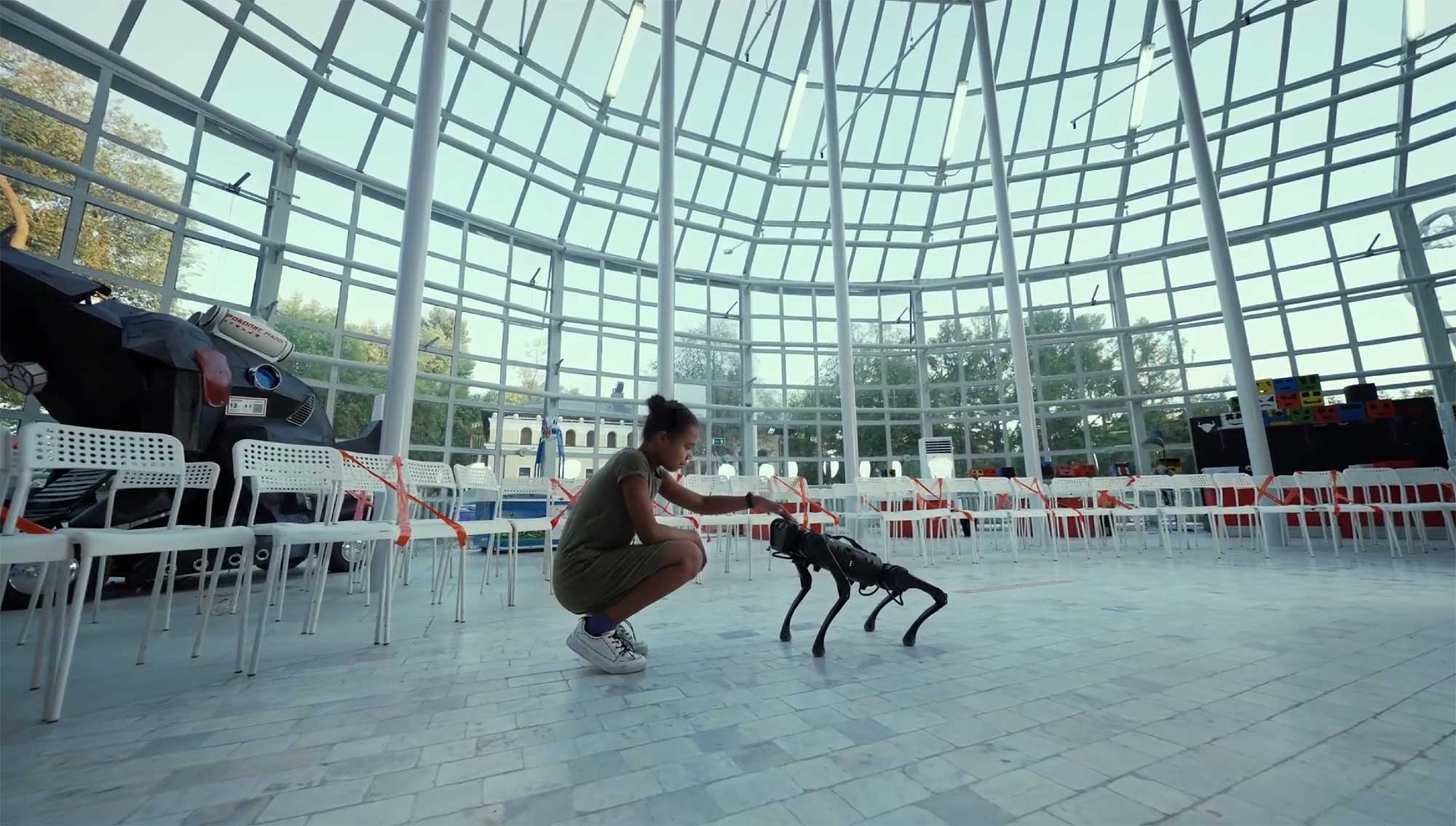News/Press
Our take on 2022 tech trends

Every January, we like to sit down with our team and do a roundtable of tech trends we anticipate will be relevant for the coming year and define the ones that we’re particularly interested in (we’ll let you be the judge of how we did with our 2021 predictions).
Here are the main themes our team will be following in 2022.
Enhancing experiences with mixed reality
One big trend we anticipate, not only for 2022 but for the next decade, is the enhancement of experiences with mixed reality using VR and AR (and of course the new trendy term, Metaverse).
In 2021, Facebook became Meta, and the multinational technology conglomerate announced their new vision: to create a 3D universe allowing people to socialize, collaborate and work. Even though the Metaverse isn’t a concept Facebook launched, after Zuckerberg’s announcement, it became part of common vocabulary. The Metaverse, put simply, is an online world inducing augmented reality, virtual reality and 3D. Experts anticipate it will become a new platform for the digital age, not replacing the internet, but building on top of it.
In the next year, we also anticipate many updates to existing remote work experiences. For instance, we could see more meetings in virtual reality. Meta is launching the Meta Quest (a virtual reality headset previously known as Oculus Quest). Will we be able to have a productive virtual reality meeting before the year is out? We’ll see…
Automation - Robotics, AI
One trend that we anticipate will have continued growth in the coming years is automation, and the realities of our societies are sure to accelerate this trend. For example, many industries are facing serious labour shortages, which can be mitigated with the help of automation. It can also help companies improve compliance, reduce manual error and quality of their output, while reducing repetitive cost. Finally, by automating routine and repetitive tasks, we can relocate human potential to more value-added functions.
Many technologies are used to accomplish the benefits mentioned above, though we expect robotics and AI to play a significant role. According to a recent McKinsey report, 50 percent of today’s work activities could be automated in the next few decades, spurring powerful changes to the future of work, labour costs, and public policy. This will occur as autonomous robots become ever-more intelligent and capable. Recently, we’ve seen proof of concepts with robotics showcased, such as the Spot robot from Boston Dynamics in which we’ve invested in 2021. This agile robot is able to leverage AI, robotics and software engineering to offer automated autonomous solutions. We anticipate this trend will specifically affect the manufacturing, construction, aerospace and automotive industries. In video, fast track innovation with Spot.
Cloud Development Kit (CDK)
We’re always on the lookout for technologies that directly impact our work. The next evolution of Infrastructure as Code (IaC) is the Cloud Development Kit (CDK). CDK is a software framework for developers to create, edit and destroy infrastructure in a language that they’re already using. Some kits already offer support for Python, Typescript or Go. The CDK provides a very nice interface for developers to develop infrastructure code, with type completion, error checking, and documentation all available in the IDE. An interesting idea would be the ability to now "bundle" source code and infrastructure code into a single dependency. This would allow developers to import a feature and its corresponding infrastructure changes or needs from a single import!
Decentralized finance and the applications of Blockchain
Blockchain isn’t new. From cryptocurrency and its dizzying rise and fall, to new hype behind NFTs, we, like many others, have been following all of it.
But what we’re really curious to watch for are more blockchain applications, specifically in the decentralized finance field. Already a wide range of organizations are using the technology for cross-border payments (one interesting one was IBM’s Blockchain World Wire.
Cybersecurity
With the global pandemic still in full swing, the whole globe has deep dived into a new reality—that of remote work. Companies had no other choice to adapt, and allow their employees to work from many locations. That accessibility of remote work brought its fair share of risk, including a growing digital space for cyber attacks. According to the research, over half of remote workers use a personal device to access work data, and 71% of security leaders lack sufficient visibility into remote employee home networks, leading to a large portion of cyber attacks (67%) targeting remote employees.
We anticipate that in 2022, cybersecurity will continue to be a growing and key trend in the decision making of companies. According to the survey, at least two-thirds of security leaders plan to increase cybersecurity investments over the next two years, with nearly 75% citing vulnerability management and cloud security as top priorities (2021 Tenable Study).
That’s a wrap for us. We look forward to seeing what unexpected trends will surprise us and which of our predictions will be brought to life.
What are some tech trends you’re watching for 2022, let us know!
Photo credit: Richard Horvath.

Did this article start to give you some ideas? We’d love to work with you! Get in touch and let’s discover what we can do together.








